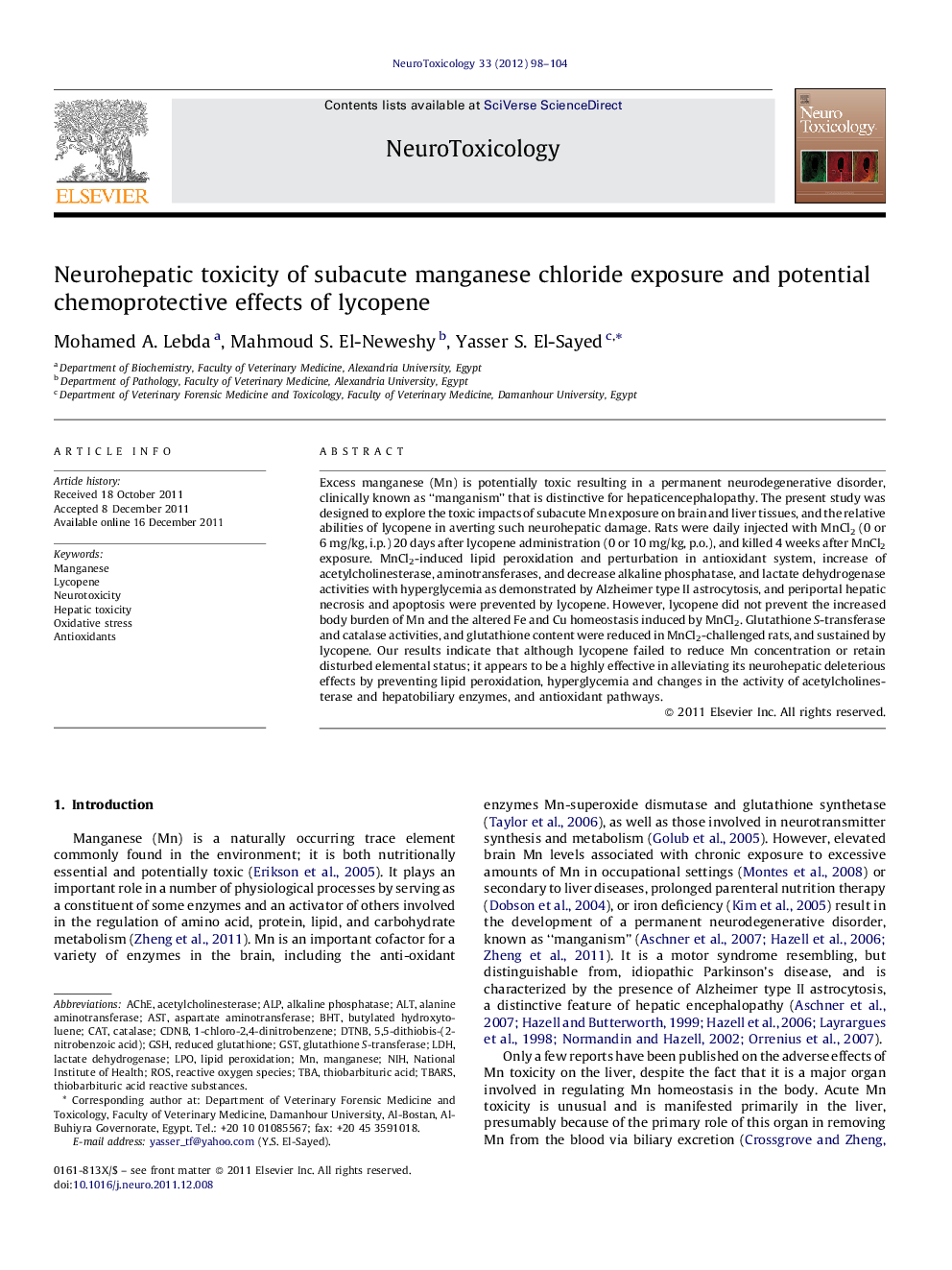| Article ID | Journal | Published Year | Pages | File Type |
|---|---|---|---|---|
| 2589789 | NeuroToxicology | 2012 | 7 Pages |
Excess manganese (Mn) is potentially toxic resulting in a permanent neurodegenerative disorder, clinically known as “manganism” that is distinctive for hepaticencephalopathy. The present study was designed to explore the toxic impacts of subacute Mn exposure on brain and liver tissues, and the relative abilities of lycopene in averting such neurohepatic damage. Rats were daily injected with MnCl2 (0 or 6 mg/kg, i.p.) 20 days after lycopene administration (0 or 10 mg/kg, p.o.), and killed 4 weeks after MnCl2 exposure. MnCl2-induced lipid peroxidation and perturbation in antioxidant system, increase of acetylcholinesterase, aminotransferases, and decrease alkaline phosphatase, and lactate dehydrogenase activities with hyperglycemia as demonstrated by Alzheimer type II astrocytosis, and periportal hepatic necrosis and apoptosis were prevented by lycopene. However, lycopene did not prevent the increased body burden of Mn and the altered Fe and Cu homeostasis induced by MnCl2. Glutathione S-transferase and catalase activities, and glutathione content were reduced in MnCl2-challenged rats, and sustained by lycopene. Our results indicate that although lycopene failed to reduce Mn concentration or retain disturbed elemental status; it appears to be a highly effective in alleviating its neurohepatic deleterious effects by preventing lipid peroxidation, hyperglycemia and changes in the activity of acetylcholinesterase and hepatobiliary enzymes, and antioxidant pathways.
► The neurohepatic effects of subacute Mn toxicity were investigated in rats. ► Mn exposure altered homeostasis of trace elements and induced oxidative stress. ► Mn toxicity manifested as astrocytosis, and hepatic necrosis and apoptosis. ► Lycopene pretreatment markedly inhibited the deleterious effects of manganese. ► Lycopene has protective potentials against Mn-induced neurohepatic toxicity.
